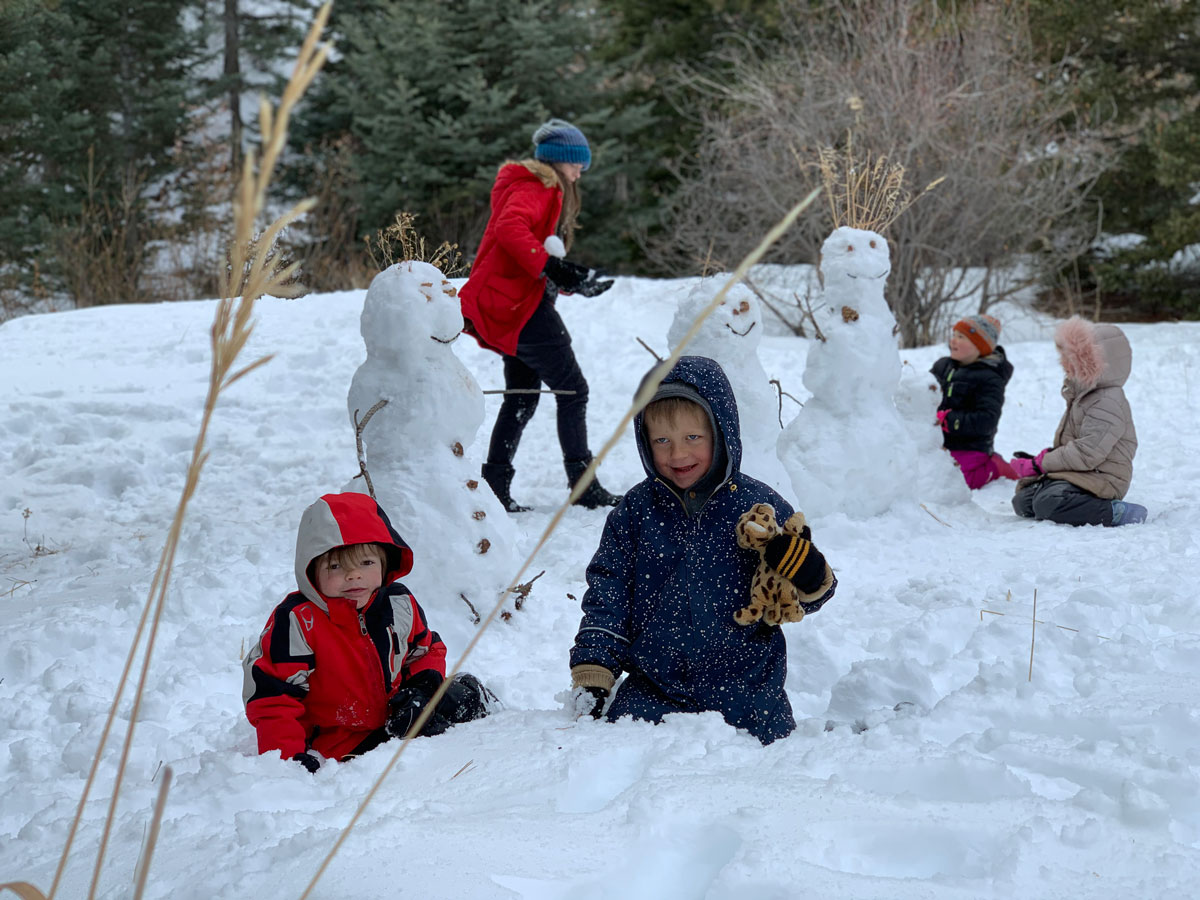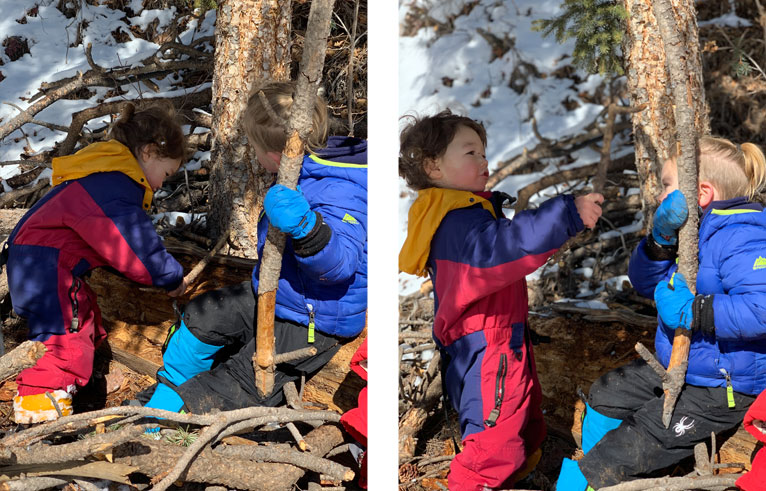
“Programs that get children outdoors, moving, playing and connecting with nature—and with each other—offer invaluable foundational skills.” – Pediatric Occupational Therapist Angela Hanscom
A few days ago while I was adding a post to our Instagram feed with some of the latest photos, an ad from REI popped up titled “Are Forest Preschools The Way Of The Future?” I clicked on the ad and was delighted to discover a whole series of blog posts on REI’s blog making a case for forest schools, also known as outdoor preschools or nature kindergartens.
In the “Are Forest Preschools The Way Of The Future?” blog post, REI links to multiple research articles showing that time outdoors offers concrete benefits to a child’s physical, emotional and mental development. Outdoor play in the natural environment also offers the unique benefits of “risky play”, which again has been found to have tremendous importance in brain and social development.

“Outdoor schools are a solution that will help bridge the gap between education, health care and the developmental needs of children.”
And in another post “Are Outdoor Preschools Changing U.S. Education?” you can read more about the research and observations from a Pediatric Occupational Therapist, Angela Hanscom, regarding the importance of outdoor play.
The importance of outdoor time cannot be overstated. Earlier on our blog we also shared some studies concerning the correlation between shortsightedness and a lack of outdoor time.
Natural unstructured environments are a place where children are free to truly be themselves. They can run as fast as they can, they can climb things, they can throw things and even break things without being reprimanded or discouraged. All of these activities are natural ways for young children to not only release their energy (which often seems endless), but also to connect with the world, to learn how the world is put together (by first dismantling it of course 🙂 ) and where their place is in it.
And while it gives a child a wonderful sense of freedom and opportunity, play in a natural setting requires constant alertness on the child’s side and involves active work of all of their senses (balance, sight, touch, sound, temperature) thus promoting the child’s brain development in a rather wholesome way.